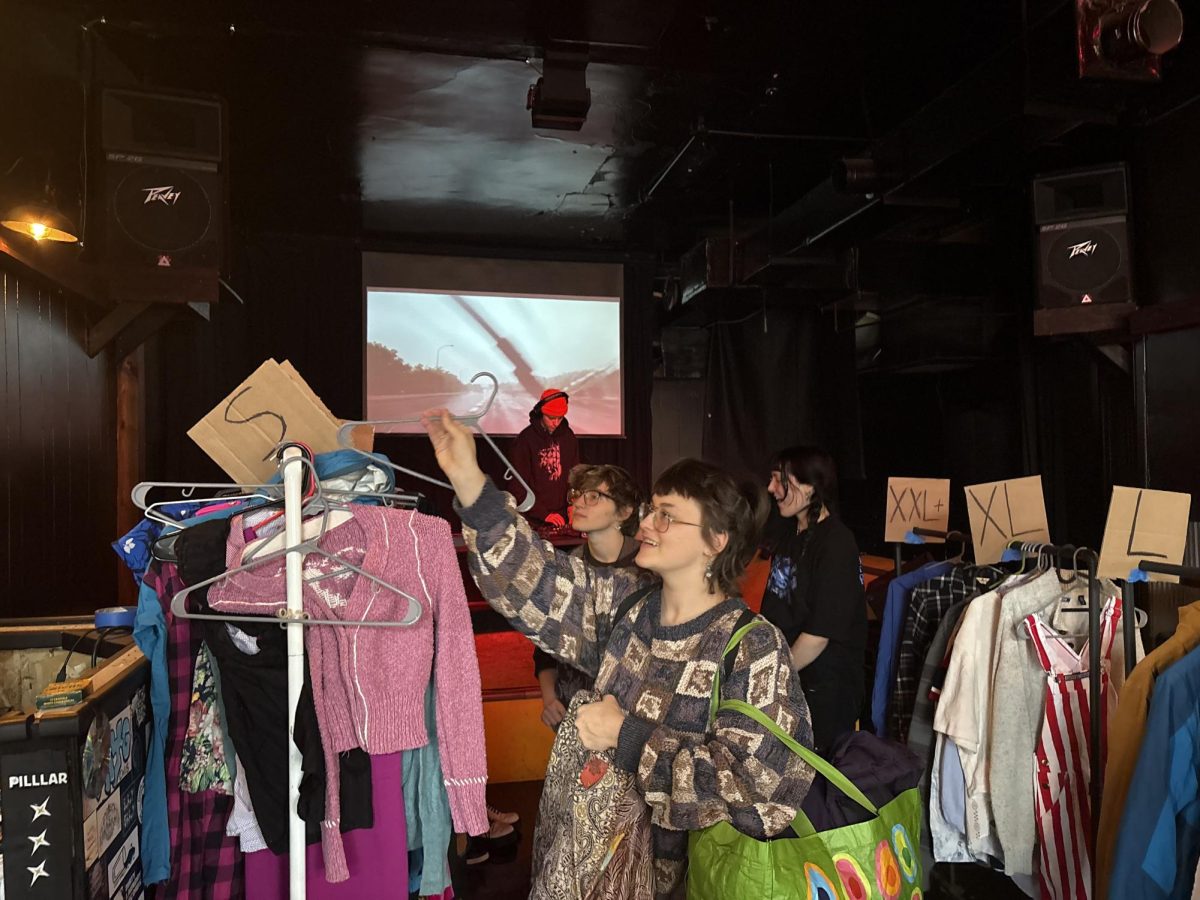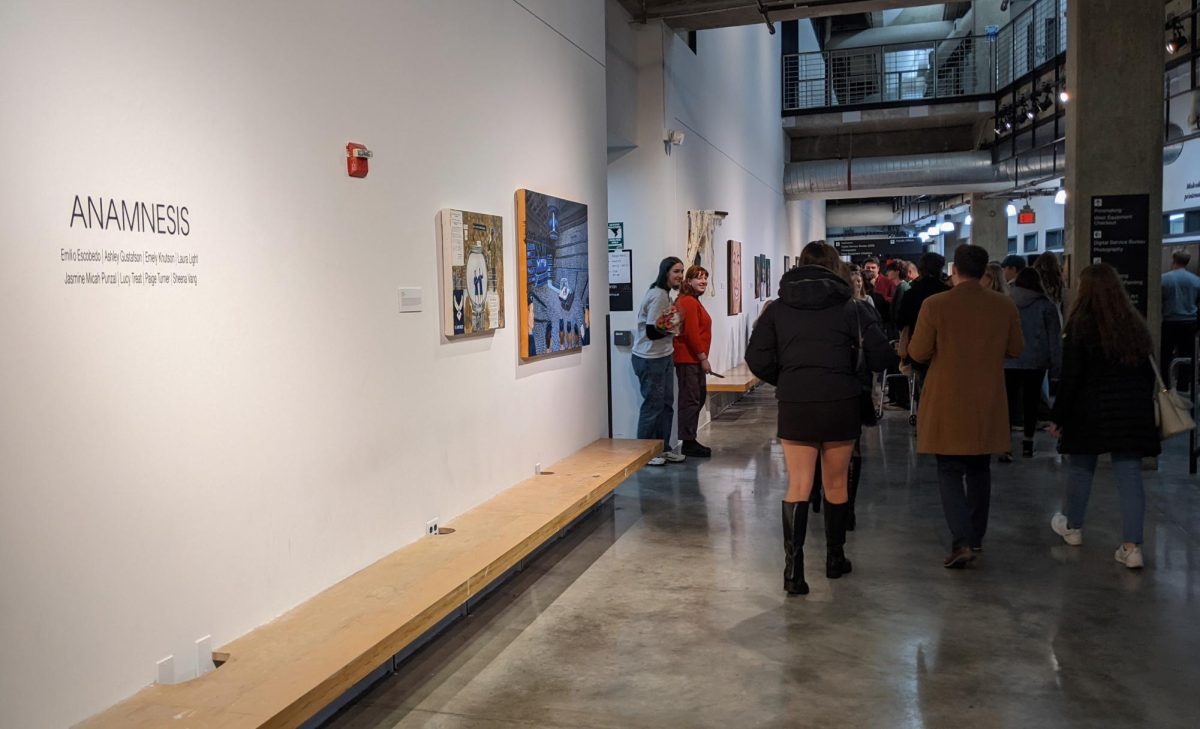“The Vibrator Play” was originally written and published by playwright Sarah Ruhl in 2009.
This production is directed by Kate Powers, who came to the University last fall to teach a course on women in theater. An all-female crew has been putting the show together since spring.
Set early in the age of electricity, the play focuses on the use of the vibrator in Victorian times as a cure for “hysteria,” a medical diagnosis for generalized depression and anxiety, typically in women (it’s no longer recognized as a legitimate medical condition).
Tessa Dahlgren, a junior majoring in theater and psychology, elaborated on the premise of the show: “It takes place in the home of a couple and it’s the next room, which is the operating theater that Dr. Givings operates in. Sabrina Daldry is one of his patients and Catherine Givings, the wife, doesn’t really know anything about his practice. Over the course of the show, the two befriend each other and delve into something that’s not talked about at all. It becomes a fascinating kaleidoscope of race and gender and class.”

The play balances comedy with drama, or maybe the other way around.
“Because we’re a bit removed from it now, we’re able to laugh at how rigid and strict Victorian binaries were,” said Isabel Enns, a sophomore in the theater program. “But [we need to] look at how that’s translated into our current lives.”
“I have said that this play is a powerful antidote to a pussy-grabber-in-chief because it’s about women finding their voices,” said Powers. “As much as it’s about discovering what an orgasm is, it’s also about learning to ask for what you want.”
The cast recognizes it may take the audience a moment to adjust when approaching such a private topic.
“I hope people will bring a willingness and openness to be uncomfortable and surprised, and to still be there with it, not check out,” said Enns. “And I hope they get a sense that they’re not alone, a sense that things can change.”
The play is important because it calls attention to the roles that our conceptions of sex play in our everyday lives.
“You have to realize that there are social, sexual identity scripts in place before you can start to question them,” said Dahlgren. “It’s startling how similar [today] is to the Victorian time period … you’re supposed to know everything that’s going to happen, and it’s supposed to go according to plan, and no one’s gonna bonk heads.”
“The constraints look different,” said Powers. “The corsets are gone. But we still have all kinds of judgments that we draw.”
But how do you communicate about sexuality if you’re not sure what you want to say, nor how you want to say it?
“It’s difficult to make a choice about how much you want to share with other people if you don’t have the vocabulary already,” said Enns. “Asking questions, knowing how everything works and how to keep yourself safe, how to enjoy yourself and make sure that your partners are enjoying themselves — once you have that foundation, you can choose whether this is something you feel comfortable talking about with other people.”
“Authenticity doesn’t mean that you have to present all of yourself, all the time, to everyone,” said Dahlgren. “It’s having the freedom and comfort to choose, and like you [Enns] were saying, if you don’t have the vocabulary, then it’s not a choice — you’re forced to keep it private and maybe not even acknowledge it yourself.”
Turns out we can relax about the whole ordeal, sit back and enjoy the show, so long as we keep talking about it afterward. And Powers makes a good point: “Serious sex sounds so boring.”
Opens at the Rarig Center on Nov. 2, 7:30 pm
Tickets $7 students, $12 staff







